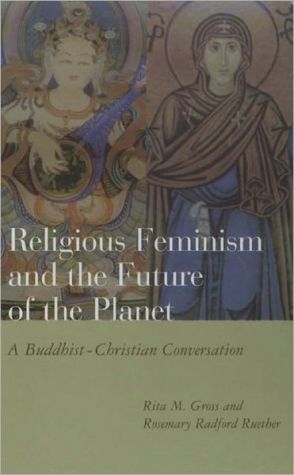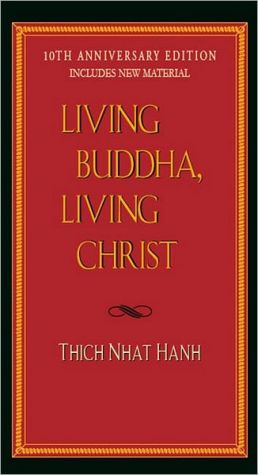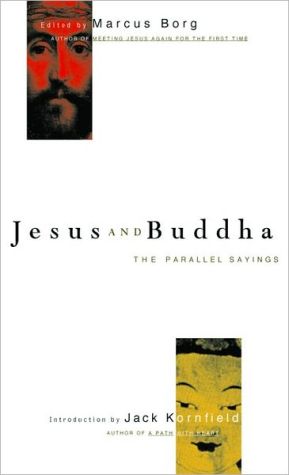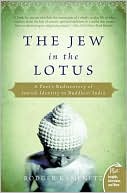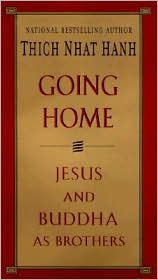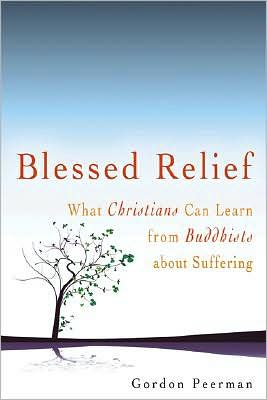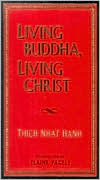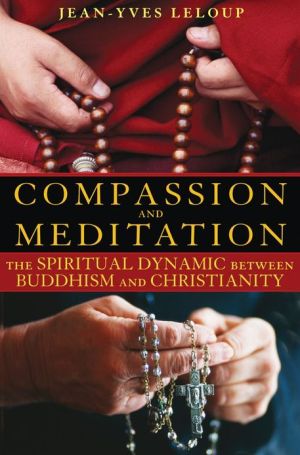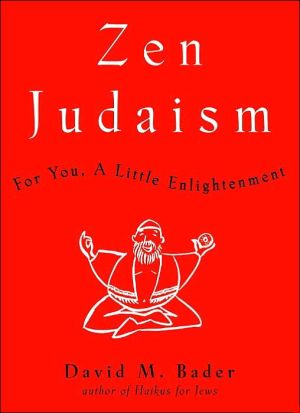Religious Feminism and the Future of the Planet: A Buddhist-Christian Conversation
"At its heart," Frederick Buechner once wrote, "most theology, like most fiction, is essentially autobiography." That is true of this book in a very explicit way. Rita Gross and Rosemary Radford Ruether have long been known for their feminist contributions to Buddhism and Christianity, respectively. In this book, they talk candidly about what their respective traditions mean to them in both their liberating as well as problematic aspects. Throughout the book, their lifestories provide the...
Search in google:
\ \ \ \ \ Chapter One\ \ \ Autobiographical Routes to Dialogue\ \ \ Rita M. Gross\ \ \ For more than twenty years, since 1980, Buddhist-Christian dialogue has been central to my life and my work. In retrospect, it seems as if all the currents that had defined my life previously were funneled into a few events that occurred that year, and as if the directions that have defined my life since then emerged from those concentrated points. Early in that year, the first edition of the book I co-edited with Nancy Falk, Unspoken Worlds: Women's Religious Lives, appeared. That book was the culmination and the most significant of my writings as a conventional historian of religions. It was also one of the last such writings. I had already begun to cross the discipline boundaries between religious studies and theology, and after that point, such boundary transgressions became ever more characteristic of my work.\ For eighty days between February and April, I had participated, as a student, in the Vajradhatu Seminary, held that year at Chateau Lake Louise in the Canadian Rockies. This intensive, demanding period of sitting meditation and study is the major training program in the curriculum of the Buddhist group which I had joined a few years earlier. It is the gateway for beginning to do Vajrayana Buddhist practices and studies, the first of which is 100,000 full prostrations. One must prove that one is serious if one wants to participate in this world: the difficulty and effort involved an apprenticeship that includes 100,000 full prostrations indicatestheunreliability of the popular literature that promises easy access to "Tantric secrets."\ The point of deepest concentration, however, was the First International Buddhist-Christian Dialogue Conference, held for two weeks in June at the University of Hawaii. I had never been involved in Buddhist-Christian dialogue, or any interreligious interchange, for that matter, but I eagerly submitted a proposal to present a paper when I received a single sheet flyer announcing the conference. I was invited to present a plenary address on "Buddhism and Feminism." That talk stands as a central reference point when I reflect on my life. It was a "coming out" event in many ways. Though I had done unconventional work before, this felt like the most daring and dangerous thing I had done to date, and, indeed, it was. In the high energy of my immediate post-seminary experience, I had composed an eighty page paper that said everything I wanted to say about Buddhism and feminism at that time. But when it came time to do the actual plenary, I put the paper away and relied on a few notes. It was the first presentation I ever gave on Buddhism and feminism, and the first time I had spoken openly as a Buddhist practitioner to an academic audience. The audience was fairly large and I was on stage in a darkened theater-style auditorium. Every now and then I would notice some of the more academic attendees of the conference coming into the back of the auditorium, looking puzzled, and leaving after a few minutes. But in the middle of the auditorium sat Robert Aitken, Roshi, head of the Diamond Sangha of Honolulu. The longer I spoke, the more broadly he smiled; I knew I was doing something right. The response when I finished was overwhelming, and all that summer as I went about the conference trail, people were still discussing that talk. It was one of several times when I have given an utterly daring presentation that took every ounce of my energy and courage, when I have said or done things in a plenary that people just don't do. It's always worked, as it did that time in Honolulu.\ In a way, everything to which I've devoted my scholarly attention was concentrated into that one talk: feminism, non-Christian religions, accurate information about world religions, Buddhism, Buddhism and feminism, interreligious interchange, even theology of religions. The response energized me to continue with what I knew was going to be an arduous task—writing the first feminist account of Buddhism—and to continue with my peculiar methodology that straddled religious studies and theology. What I was up against, as a Buddhist feminist theologian, was also revealed at the conference. Though the Japanese (male) delegates didn't talk with me, they talked with my Western male colleagues who reported to me. "That crazy American woman," they said. "What is her problem? We can understand that Christian women might feel a need for feminism—after all there's the male priesthood, the male deity, and so on. But we Buddhists have solved all those problems. According to Buddhism, deserving women are reborn as men!"\ The second such conference was in 1984. At the conference, the prestigious Cobb-Abe International Buddhist-Christian Theological Encounter made its all-male debut. The conference attendees exploded about the lack of women and one of the organizers defended the group, saying "We invited Rosemary Ruether, but she turned us down." My name was put forward by people attending the conference and I was quickly invited to join the group. I was terrified. I had not prepared in any way for this turn of events and suddenly I was the only woman on stage with some of the most prestigious male theologians in the world. But I just did it, I just made myself sit there, though I didn't say anything at that dialogue. When we debriefed, I told John Cobb that I would not stay with the group unless at least two Buddhist and two Christian women were invited to join the group. Needless to say, they agreed, but asked me to do a major paper for the next meeting. I still felt intimidated, but went ahead anyway. As I gained my voice more and more, my intimidation dropped away; this is now one of my favorite groups of people in the world. I must also say that every man in this group has always been kind and gracious, and never condescending to me.\ After the 1987 conference, the Society for Buddhist-Christian Studies was organized and I became its first vice-president and second president, succeeding John Cobb. When the Society's by-laws were written, care was taken to ensure equal representation on the board and in the leadership of the Society, not only between Christians and Buddhists, but also between women and men. I know that was in part due to my active participation in the Society. But I would argue that, if feminists get out into the bigger world, such results are not improbable or impossible. I have become quite tired of the self-isolation of many in the feminist theological movement today and find their worldview, which usually doesn't include much concern with religious diversity or non-Christian religions, to be quite stifling. I have continued with active participation in the Society and in the Cobb-Abe theological dialogue and also am co-editor of the Society's journal at this point.\ But why would I have devoted so much energy to Buddhist-Christian dialogue? After all, I'm a historian of religions by training and a Buddhist by confession. Furthermore, becoming publicly identified with such a theological venture is professionally dangerous for someone whose major academic hat is being a scholar of an Asian religious tradition. I remember that when I saw the flyer for the 1980 conference, something very deep in me, beyond considered choice, responded—"Yes! I want to do this," though I don't think the idea of participating in inter-religious exchange had occurred to me before. I did not rationally make the choice "I should do this because ..." I believe the activity so compelled me because of my own traumatic history with Christianity. I longed, and long, for contact with a Christianity that is sensible and compassionate, and I have found it in the world of Buddhist-Christian dialogue.\ It is early 1965. I am a senior in college, a philosophy major, rapidly becoming somewhat proficient in the Hebrew language, nearly perfect GPA, about to head off to graduate school in the history of religions at the University of Chicago. My mother has been dead for two months and I have come home to attend another funeral. The pastor of the Lutheran church in which I had been confirmed suddenly appears at the door. He is looking for my father; he did not know that I was home. But this is his chance for the confrontation he obviously feels is appropriate. At my mother's funeral, he had as captive audience, myself, my cousin who had become Catholic when she married, and my wayward uncle who had lived with several women over the years. The funeral sermon was mainly directed at me, though he reprimanded everyone else as well, and it was quite aggressive. Mainly the sermon was anti-Jewish because I had been studying Judaism for a number of years, but it was also intensively anti-learning as well. I do not remember much of the actual content but I do remember the feeling, sitting in the front pew—"If this wasn't my mother's funeral, I'd just get up and leave."\ He began asking me very specific questions concerning my religious views about various matters, but when I tried to explain anything, he interrupted me immediately with "the truth." I got it relatively quickly and refused to stop speaking when he began, but he paid no heed and just kept up his monologue, no matter how long I continued. Finally he yelled, "I don't care what you think about anything. Just give me a `yes' or a `no' answer. Do you still hold completely to the doctrines to which you swore your lifelong allegiance when you were confirmed?" (at the age of fourteen). "That's exactly what the Catholic church demanded of Luther at the Diet of Worms," I replied. He turned away and slammed the door of my house so hard he almost broke the glass. A few days later, I got the letter telling me that I had been excommunicated and was going to spend eternity in a very hot place unless I apologized to him and repented of my sins. "You have sold your soul for a mess of academic pottage," I was told. My numerous sins? An earlier reprimand session, in which I was being castigated for singing in the choir at the wrong kind of Lutheran church sums it up: "I always knew I'd have problems with you someday. You asked too many questions." Most of all, I simply could not accept that all non-Christians and most non-Lutherans would end up in hell because they had the wrong religious ideas and didn't believe in Jesus. "There will be some Catholics in heaven," we were told. "But we don't know how they're going to get there given what they believe." Twenty-one seems a little young to be a confirmed heretic, but there I was—excommunicated for heresy.\ My childhood was not of this century. I have a picture of myself in the second or third grade. I have traditional braids, as my hair had never been cut. I am wearing an old-fashioned looking dress and the horrible long brown cotton stockings and ankle-high scuffed brown shoes that I was made to wear at that age. I am standing on an unpainted stoop against the background of an exterior wall with flaking paint. I look like something out of Laura Inglis Wilder; most people would assume it was a photograph from the nineteenth century. That was how we lived. I grew up in a log cabin that my parents had built. My mother skidded the spruce logs out of the woods with a horse and my dad notched them and put them together, like children might do with toy building components today. The house stood in the middle of forty acres of land; neither the highway nor any neighbors were visible. Heat and energy for cooking came from two wood burning stoves, one in the living room and one in the kitchen. The enormous quantities of wood required for heating and cooking had to be prepared each year: felling the logs, buzzing them up, splitting them if necessary, stacking them, and hauling a fresh supply of wood into the house every day. Water for all purposes—cooking, washing, bathing, and doing laundry—was carried from a spring some distance from the house. There was no indoor plumbing; outhouses worked quite well. We did have electricity. I vaguely remember the electricians putting in the wiring when the Rural Electrification Project brought electricity to areas such as ours after World War II. We never had a TV, or, much worse for me when I was a teenager, a telephone.\ My parents survived the depression somehow, living from hand to mouth, and as a result my mother was a consummate packrat. We saved everything "in case of bad times." By the time I was around, my dad had gotten a job doing shift work in a local factory that made pallets. We also had a cow or two and my mother raised chickens for both eggs and meat for a number of years. She also churned butter and my parents had a route in town to deliver butter, eggs, and chickens, as customers ordered. My mother hated raising chickens and was more than happy to get a few more cows, start selling the milk, and quit the butter, eggs, and chicken route. We had a large garden and my mother canned virtually everything you could think of, including peaches and other fruits that were bought in the store. There was a root cellar under the cabin, with shelves lined with home canned products, including meat, and a large potato bin. Every day someone got the potatoes for our daily home-canned meat and potatoes supper—usually me, as soon as I could.\ We got our first tractor in 1949. What a day! My dad had to drive it home from town, seven miles, which took quite a while with a 1940s tractor. With cows around we had to make hay every summer, which became one of the dominant realities of my life until the summer after I graduated from college. When I was almost seven, we got our first horse, the fulfillment of my mother's dreams of many years, and mine too. She must have taught me that I wanted a horse, but I still love horses. Those were happy years. My parents still got along well and seemed to enjoy each other's company, and the work load, while heavy, was not overwhelming. Things changed a lot after we acquired "the farm." My mother had grown up on it and it had been farmed by her younger brother, who had died suddenly of a cerebral aneurysm. None of the other brothers wanted to farm but my mother couldn't bear to see the property leave the family. Besides, my father's factory was going to close any day; everyone knew it and he was too old to get another factory position (of which there were very few to be had anyway). So we acquired the farm—l60 acres kitty-corner with our own forty—when I was eleven.\ If I were to be more analytical, using an out of favor analytical model, I could say that my childhood and teenage years were dominated by the natural world and a cultural order. They were quite contrasting in the extent to which they nurtured me. The memories I narrated above are early. My more dominant memories involve the years of working the farm and all that entailed. Even in the 50s, it was a marginal farm, too far north and too small to provide livelihood above the poverty level. I worked on the farm from late grade school through college.\ My favorite memory of the farm, based on experiences which prevailed all through high school and college, occurs in the summer. I get up at about 4:00 A.M.; my parents have already been up a while. I go out to the little barn near our house and saddle the horse I am riding. My dog, a collie whom I had named "Lassie" when I was younger, has been unchained and is excited to be out for a ride and a run. The big barn, where the dairy herd is kept, is a ways away from our home site and my mother and I both ride horses back and forth. We three, dog, horse, and I, take off across a home built wooden bridge and through the woods. We come out of the woods at the base of a large hill; all the fields are at the top of that hill. The sun is very new in the sky; the light is soft—a golden, soft, open light that I still find impossible to describe. As we move through the grass, we leave trails in the heavy dew. We reach the barn; I lean down beside the horse's neck so that I don't have to dismount till we get to her stall. Her hooves clop on the cement floor and all the calves begin bawling; they know they'll soon be fed. I grab a milkstool and milkpail and get a cow into the proper position to be milked, lean my forehead into her flank to remind her to stand still and start in. To be milked properly, a cow has to be milked very fast and it's quite hard work. Twelve to fifteen minutes and there is a full pail of milk. Some is measured out for that cow's calf and it is fed. Repeat ten or twelve times. If I never milk another cow, it will be too soon, though I didn't mind it at the time. (We had milking machines and all the equipment needed to use them. My mother refused to do so.)\ Later, after the dew dries off, it's time to make hay, one of the most important and labor-intensive aspects of the kind of farming we did. I either drove a tractor or worked loading and unloading hay bales all day. I actually did more of the work with hay bales because my mother could not do that kind of work due to a childhood injury. She did more tractor-driving, which is a sit-down job. That meant that I spent most of my time, as a pre-teen and teenage girl, working with a small crew of men, and I took pride in the fact that I could throw a bale of hay almost as well as they could, though, realistically, I had to stay with the lighter jobs of top-loading the wagon and then throwing bales into the haymow where the men worked to stack them. At the end of that kind of workday, the cows had to be milked again. Twice a day, 365 days a year, cows had to be milked; there was no such thing as a break.\ Dominant winter memories are somewhat different. Fortunately, my mother did not make me do barn chores on school days. Instead, I walked home from where the school bus dropped me off, let myself into the house, and rekindled the fires in the cook-stove and the main heater. (Thus, I was a "latch-key" child, and I don't see any problem with that practice.) A pot of water was boiled and I did the dishes from the preceding day. Then I did whatever housework needed to be done—ironing, patching. By then I made most of my mother's clothes and all of my own. I cooked dinner (we called it "supper") on the wood-burning cookstove. My parents came home from the barn and we ate. They went to bed almost immediately after supper and I did homework, or—luxury of luxuries—simply read for pleasure. The only place warm enough to do so was sitting right next to the cookstove, sometimes with my feet in the oven. I have vivid memories of sitting there wondering whether I dared put one more piece of wood in the stove and read just a little longer. I could regulate the temperature of that stove so precisely that I could bake a cake in the oven, and I knew just how long I could get out of one more piece of wood.\ Weekends found me in the barn again. The cows got very dirty, lying in their own manure part of the time. (There were gutters for their manure, but they often missed.) Milking them by hand, they had to be somewhat clean or the milk would be too dirty to use. So I kept them curried in the winter. Actually, I loved the barn in winter. I have an especially vivid memory of sitting there one evening. The chores were all done; the cows had been fed new hay and were happily munching away. The sound of thirty or so cows chewing their hay is indescribable. I was sitting on a bale of straw, my dog happily cuddled beside me. It was an experience of pure contentment. "What's so bad about being born in a barn?" I asked myself. (It must have been near Christmas.) As my dog and I cuddled and hugged each other, I asked, "What's so evil about touching?" (We were forbidden to dance because it was too dangerous to touch that way.)\ After my dad quit farming, I bought his half of the farm from him and kept the land and the barn for many years. I just couldn't let go of it. My cousin farmed it, paying me the cost of the property taxes. After the barn finally burned down a few years ago with forty-five head of cattle in it, I called my cousin. We tried to talk, but all we could do was hold the phone and weep. Even now, just writing this makes me weep all over again. There was something so unfathomably profound about the land and the animals, so many vignettes of unsurpassed beauty, so many little corners of the land here and there that stop the mind and break the heart. Even saying the word beauty to describe their quality is far too trivial.\ And then there was culture. I grew up in northern Wisconsin, which was quite provincial then. For example, I never saw a black person until I went to college, though I angrily listened to my Milwaukee relatives complaining about the "n_______s." Speaking up to them was not appreciated. Neither of my parents went to high school. Education was not particularly valued, either by my family or the culture. Intellectual inquiry was even less understood or tolerated.\ My struggle to find enough books to read is indicative of what the culture was like. I spent the first four years of grade school in an old-fashioned one-room school house with one teacher for all eight grades. The library consisted of two small bookshelves, one for grades one through four on one side of the room and the other, for grades five through eight, on the other side. By the time I was in the third or fourth grade, I was reading at the seventh or eighth grade level and I had more than exhausted all the books in the book shelf for the lower grades, many of which were intended for children just beginning to learn to read. But I was forbidden to cross the invisible line that separated the other bookshelf from the one to which I had access. "You'll just have to wait until you're older," I was told. It was suggested that I should take books out of the lending library in Rhinelander, a town seven miles away in which we shopped regularly anyway. That worked for a few weeks until the librarians realized that my parents' cabin was a few hundred yards on the wrong side of the county line. "Your parents don't pay taxes in our county, so you can't read our books." Instead, they were told to take me to Merrill, thirty-five miles away, to borrow books there. That was not going to happen, given the time and money it would have taken.\ A few years later, when we had acquired the farm, I went back to the librarians. "My parents now own land in Oneida County, so we pay taxes here." The reply, "That's not enough. You actually have to live in Oneida County to read our books." From fifth through eighth grade, I attended the Lutheran parochial school in Rhinelander, two blocks from the library. Though I was still forbidden to cross the street by my over-protective mother, I went to the library anyway with my friends. I picked out books, which they checked out on their library cards. The librarians figured out what was going on. "If you let her read books on your library cards, we'll take your library cards away from you. She's not permitted to read our books." Finally, I was in high school in Rhinelander and by law was permitted to have a library card. The librarians still tried to keep me out of the adult library as long as they could and were always complaining about the number of books that I checked out.\ One of my attempts to find something to read resulted in an eerie experience for which I have no real explanation. I was probably in the third grade. My parents had gone to visit some friends, taking me along, as always. (My mother prided herself on the fact that she took me everywhere and never left me with an older relative or friend.) These friends had somehow acquired some cast-off school books. Among them was a coverless geography book with half its pages missing, but I hadn't seen it before, so I settled down to read it instead of playing with my parents' friends' kid. Amazingly, for a book that was already old in 1952, it included a chapter on Tibet, which I started reading. All sorts of information was presented, including the claim that Tibetans were a very dirty people who hardly ever bathed. It was explained that their climate was too cold and dry to permit much bathing, but I said to myself indignantly, "That's not true! We are not dirty!"\ Not much needs be said about the schools. The restrictions on library use at the one-room school house say enough. At the Lutheran parochial school, the main emphasis was making sure we didn't hear about anything that was not correct according to church dogma. That made it very difficult to teach science, and I had virtually no education in science until high school biology. (The library at the Lutheran school isn't even worth mentioning; everything was censored by quite a number of criteria.) High school, however, was another matter. Whatever its limitations, including few classes intended for the more academically oriented students, it was a gateway to another world, the world beyond Rhinelander, Wisconsin, and the seventy mile radius around Rhinelander that constituted the world I had physically experienced. In those days, some things about the education system in general were better than they are today. For example, I was able to take two years of Latin in this remote and provincial part of the country. Studying Latin was a whole new window on the world and I was rapidly following my gaze out that window.\ The social milieu was very difficult, however. There are two parts to these difficulties, one due to the culture in general and one more specific to my socialization. Girls were less valued, and I knew that from a very young age, not from anything overt on the part of my parents but from general and widespread cultural signals. A reproduction of a well-known religious painting hung on one of the cabin walls. It showed two children crossing a flimsy bridge over a deep ravine, with an angel behind them, obviously guarding them and watching over them. I was still very young, perhaps even pre-school, when I began to take comfort from that picture. "Jesus was a man," I mused, "and so is God. Where does that leave me?" Then I would look at the picture. "Ah, but the angels are women!" Later, the message was delivered in confirmation class. The role of a Christian woman was to be married and have children if at all possible. But those unfortunate women for whom that did not happen could still help in the work of God's kingdom. Women were to obey their husbands and be subservient. How do we know this? From the fact that both Jesus and God are male. I put up my hand. "But the angels are women," I protested. "No—that's not the case. The artists make it look that way, but they're really painting the angels incorrectly. They are also men." This was the same pastor who later excommunicated me.\ I spent many of my pre-teen and teen years desperately wishing, "If only I hadn't been a girl. Why did I have to be a girl! Girls can't do anything that I want to do. I don't want to have kids, I want to explore the world and to think!" Finally one day, it occurred to me, "It's not me—there's nothing wrong with me. It's the system." My anger switched from being focused on my female body to being focused on the system, but this was well before the emergence of the feminist movement and I tried hard to conceal my anger because it was so unacceptable.\ Socially things were also very difficult, due to the way I had been raised. My mother was a very difficult person—extremely over-protective and domineering. When I was younger, I was never allowed to do anything the kids in my rural neighborhood did, especially ride their bikes exploring the countryside, because "you might get hurt. I don't know about these other parents, they let their kids run all over, but I love you, so I'm going to keep you right beside me all the time." Needless to say, I didn't develop very good social skills, which, combined with being female and being bright in an era and area that did not value brightness in children, made for a miserable social life, all through high school. I also remember saying to myself, "I wish I weren't so smart so that the other kids would like me." They liked me well enough when they needed to borrow and copy my homework, but that's as far as it went. By high school, I was simply hanging on, waiting to get away to college where there might be other people genuinely interesting in learning, who were not just putting up with school.\ My mother cared little for my grades; it just didn't matter to her one way or the other. Her sole ambition for me was that I would marry a farmer and build a house right next to hers so that we could be together forever. She tried to control, not only that big decision of my life, but every detail. For example, when I was in college, I needed new glasses and she insisted on picking out the frames, even though I was twenty years old, largely self-supporting, and worked like a dog, without pay, for my parents on the farm every summer. I had picked a stylish pair of glass frames that I thought made me look rather good, but she picked a dowdy, bland pair of frames that she said were "more sensible." By then I had learned not to fight back but to wait it out. I refused to settle for her chosen frames. It took all day, with the optometrist finally intervening to say that the frames I had chosen were perfectly okay, but I got the frames I wanted.\
Preface1Introduction: A Dialogue about Dialogue51Autobiographical Routes to Dialogue252Autobiographical Roots of Dialogue483Where Are the Women in the Refuge Tree? Teacher, Student, and Gender in Buddhism65Response834Oppressive Aspects of Christianity88Response1025What Keeps Me in Buddhist Orbit? Silence, Contemplation, and the Dharma107Response1216What I Find Liberating in Christianity126Response1407What I Have Learned from Buddhism147Response1608What Buddhists Could Learn from Christians163Response1839Christian Resources for Ecological Sustainability189Response20310Buddhism and the Future of the Planet: Sustainability and Spiritual Discipline207Response222Suggested Readings226
\ Publishers Weekly - Publisher's Weekly\ "It is crucial that the world's faiths and historical cultures not only end their wars against each other, but enter into the kind of deep mutual understanding that can lead to solidarity in creating a just, peaceful, and sustainable world." This noble sentiment forms the heart of an extended "conversation" between two religion scholars. Gross, a Buddhist (Soaring & Settling, etc.), and Ruether, a Christian (Gaia and God, etc.), have collaborated since 1985 on interfaith dialogues that are respectful, balanced and enlightening. Here they reveal their own personal stories first, and then proceed to explore, measure for measure, the problems, liberations and inspirations of their religious traditions, each woman responding to the ideas and issues raised by her friend and colleague. The final pages apply this technique and these concepts to ecological concerns in a chapter that shares the book's title. The metaphor Gross and Ruether so aptly use for this conversation is that of learning a second language that enhances, but never supplants, one's mother tongue. Readers specifically seeking a heavy treatment of ecospirituality will yearn for more pages, but nonetheless the wisdom on this issue does not disappoint. The book is a good model of what so many women do well: carry their own candles and hold them high, dispelling darkness together. (May) Copyright 2001 Cahners Business Information.\ \ \ \ \ Library JournalIn several earlier works, Gross (Soaring and Settling: Buddhist Perspectives on Contemporary Social and Religious Issues, LJ 8/98) and Ruether (Gaia and God: An Ecofeminist Theology) have examined feminist issues in the context of Buddhism and Christianity, respectively. In this new work, each author delineates her views on both traditions and then responds to the other's comments, allowing a rich dialog to emerge that offers a glimpse of a hope-filled future for major religious traditions in the progressive wings of the emerging global culture. Both authors offer autobiographical sections and touch on, among other things, the strengths and problems they see in their own and the other's tradition and how they see these traditions contributing to an eco-spiritual view crucial to the survival of the planet. Free of clich , stridency, or anger, the voices are consistently assured and convincing. Of particular interest are the passages in which the authors discuss their coming to terms, as feminists, with traditions consistently criticized for their patriarchal structures and how the deep reading of these traditions sustains them in their progressive endeavors. An important and thought-provoking book; suitable for all academic and public collections. Mark Woodhouse, Elmira Coll. Lib, NY Copyright 2001 Cahners Business Information.\ \ \ BooknewsThis interreligious dialogue<-->in which alternating chapters present each woman's thoughts, with a response by the other<-->grew out of a workshop Gross and Ruether presented in Loveland, Ohio, in 1999. Their conversations range across themes including: What is most problematic about my tradition? What is most liberating about my tradition? What is most inspiring for me about the other tradition? And, finally, religious feminism and the future of the planet. The two feminist thinkers and writers present widely diverging life histories and faiths, but they reach agreement on the issue at hand<-->what Buddhism and Christianity can offer the struggle to create ecological sustainability. The work has no subject index. Annotation c. Book News, Inc., Portland, OR (booknews.com)\ \
